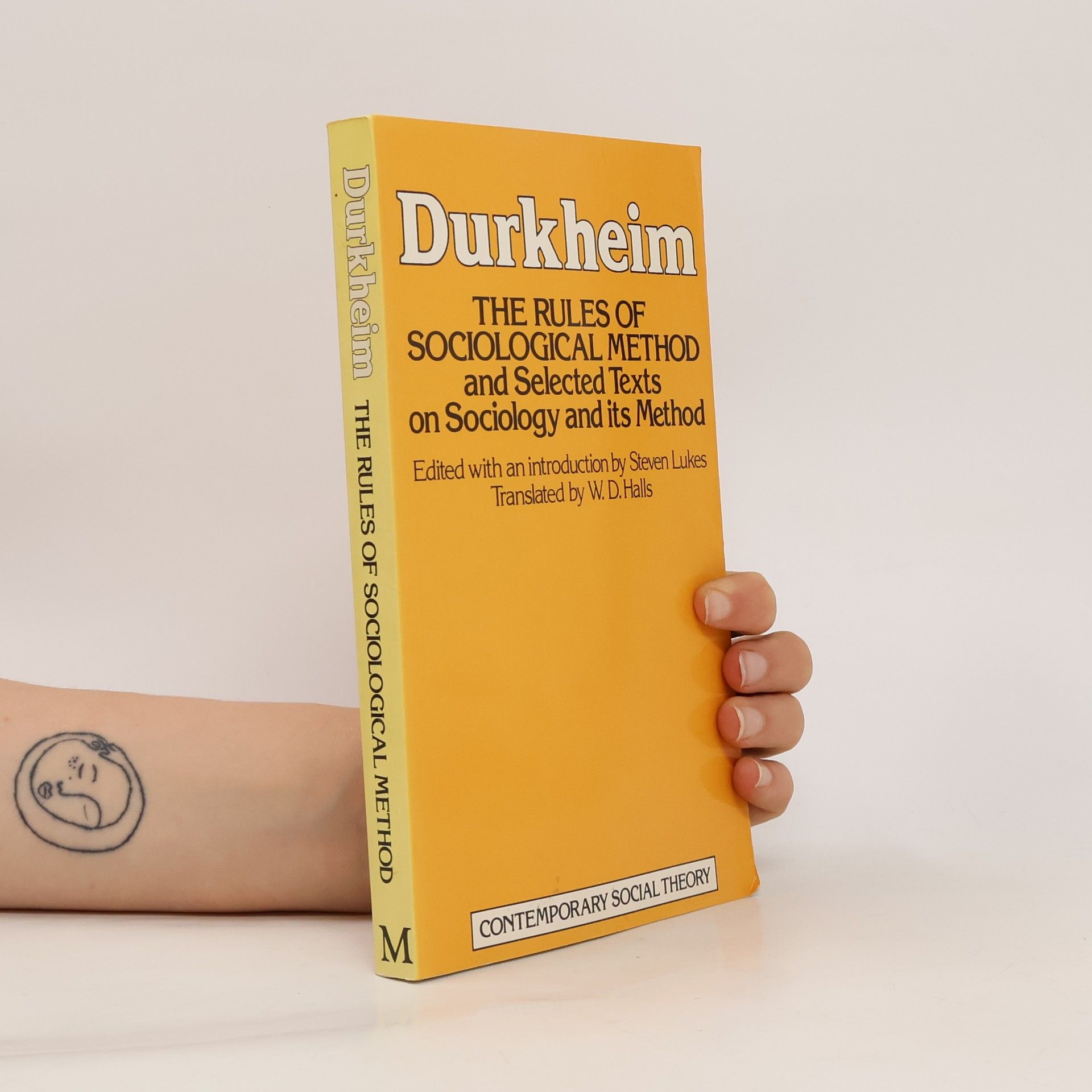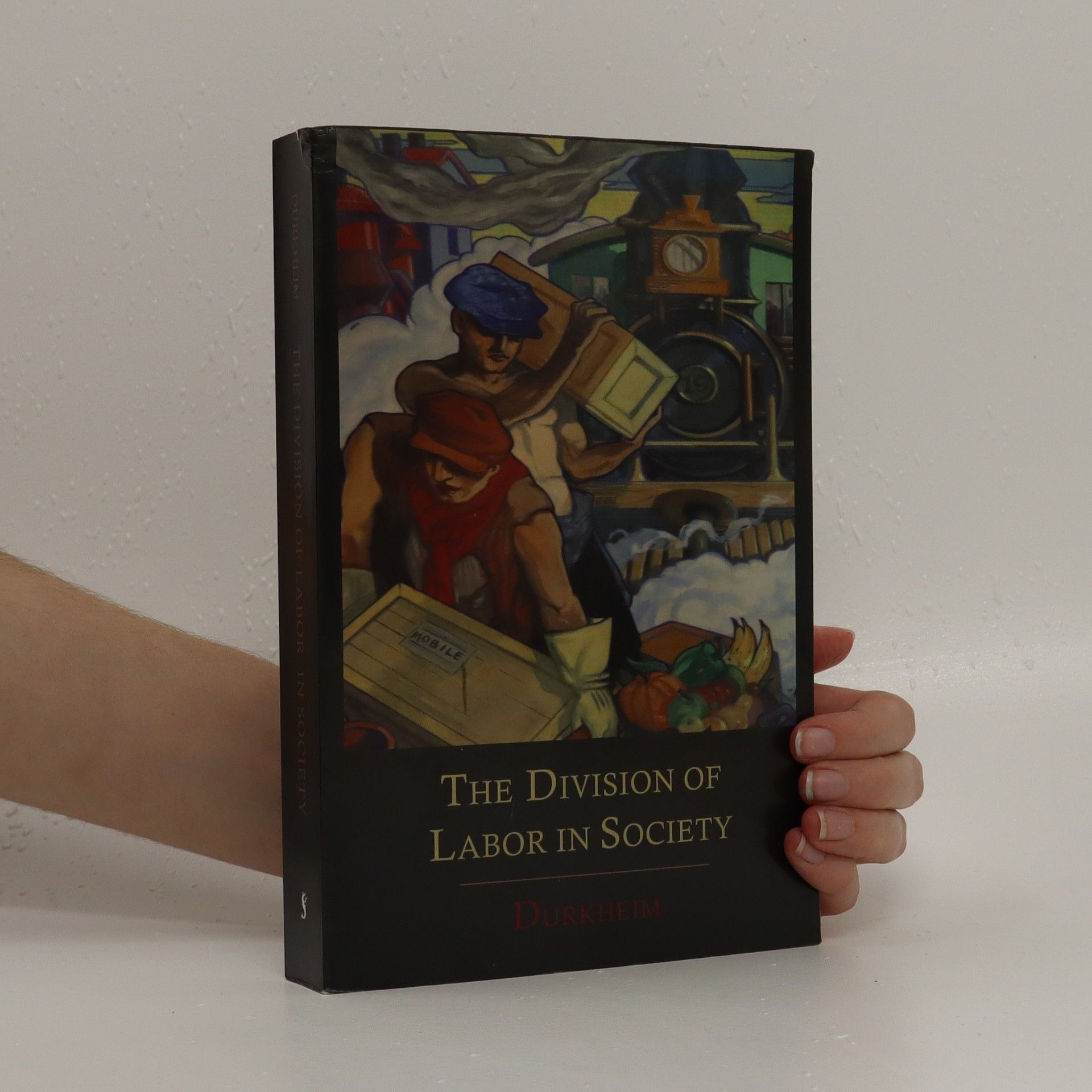Professional Ethics and Civic Morals
- 276 pages
- 10 hours of reading
Durkheim's work primarily explored how societies maintain integrity and coherence in modernity, an era where traditional social and religious ties wane and new institutions emerge. He pioneered modern social research, distinguishing sociology from psychology and political philosophy. Durkheim advocated for a holistic approach, studying societal structures rather than individual actions. His efforts significantly advanced the academic acceptance and scientific rigor of sociology.







Francouzský sociolog a filosof představuje v tomto svém díle myšlenku, že náboženství je prvotním faktem života, v němž spočívá síla utvářející společnost.
Zakladatel francouzské sociologické školy Émile Durkheim (1858–1917) je často a právem považován za tvůrce vskutku moderní sociologie. Z jeho rozsáhlého díla jsme vybrali úvahy o základních sociologických a etických otázkách, problémech a pojmech, jež vyjadřují osobitost Durkheimova pohledu na sociální svět i sociologii jako vědu. Durkheimovy úvahy z let 1898 až 1911 jsou doplněny studií Sociologie a sociální vědy (1903).
Emile Durkheims (1858-1917) – längst klassisch gewordene, aber noch immer aktuelle – Studie geht der Frage nach dem Wesen der Religion nach. Durkheim entwirft die Grundlage für eine funktionalistische Betrachtung der Religion, indem er als ihren sozialen Kern die Aufgabe zur Stiftung gesellschaftlichen Zusammenhalts und gesellschaftlicher Identität ausmacht. Mit der Abgrenzung eines funktionalistischen Religionsbegriffs von einem substantialistischen Verständnis der Religion verdankt die moderne Religionssoziologie Durkheim wichtige Impulse.
Emile Durkheim (1858-1917) was one of the founders of modern sociology. Ethics and the Sociology of Morals (La science positive de la morale en Allemagne) laid the foundation for Durkheim's future work. More than a review of current thought, it was a proclamation that ethics needed to be liberated from its philosophical bondage and developed as a distinct branch of sociology. Written when Durkheim was charting the course of his own research, it provides a unique key to the interpretation of his earlier work and presents a number of points of Durkheim's ethical theory which are of considerable interest in light of current ethical theory. This volume makes available in English a crucial essay by a master of social thought.
Der Band enthält neben dem Text von Durkheims Vorlesungen »Pragmatismus und Soziologie« den Aufsatz von Durkheim und Marcel Mauss »Über einige primitive Formen von Klassifikation« sowie im Anhang den Aufsatz von Hans Joas »Durkheim und der Pragmatismus«.
Réédition d'un ouvrage publié en 1950 par la Faculté de droit de l'Université d'Istanbul qui rassemble plusieurs cours inédits inédits alors du père de la sociologie française. Les thèmes abordés relèvent de la sociologie politique et de la sociologie juridique : morale civique, morale professionnelle, droit de propriété, droit contractuel.
Revised for the first time in over thirty years, this edition of Emile Durkheim's masterful work on the nature and scope of sociology is updated with a new introduction and improved translation by leading scholar Steven Lukes that puts Durkheim's work into context for the twenty-first century reader. The Rules of Sociological Method represents Emile Durkheim's manifesto for sociology. He argues forcefully for the objective, scientific, and methodological underpinnings of sociology as a discipline and establishes guiding principles for future research. The substantial new introduction by leading Durkheim scholar Steven Lukes explains and sets into context Durkheim's arguments. Lukes examines the still-controversial debates about The Rules of Sociological Method's six chapters and explains their relevance to present-day sociology. The edition also includes Durkheim's subsequent thoughts on method in the form of articles, debates with scholars from other disciplines, and letters. The original translation has been revised and reworked in order to make Durkheim's arguments clearer and easier to read. This is an essential resource for students and scholars hoping to deepen their understanding of one of the pioneering voices in modern sociology and twentieth-century social thought.
Exploring the intersection of religion and sociology, this book delves into the foundational concepts of elementary religion, examining key beliefs such as totemism and the notion of the soul. It investigates the origins of these beliefs and their implications for understanding religious practices. The text also addresses principal ritual attitudes and the role of positive cults in shaping religious experience. Through a structured analysis, it aims to provide insight into the fundamental aspects of religious thought and practice.